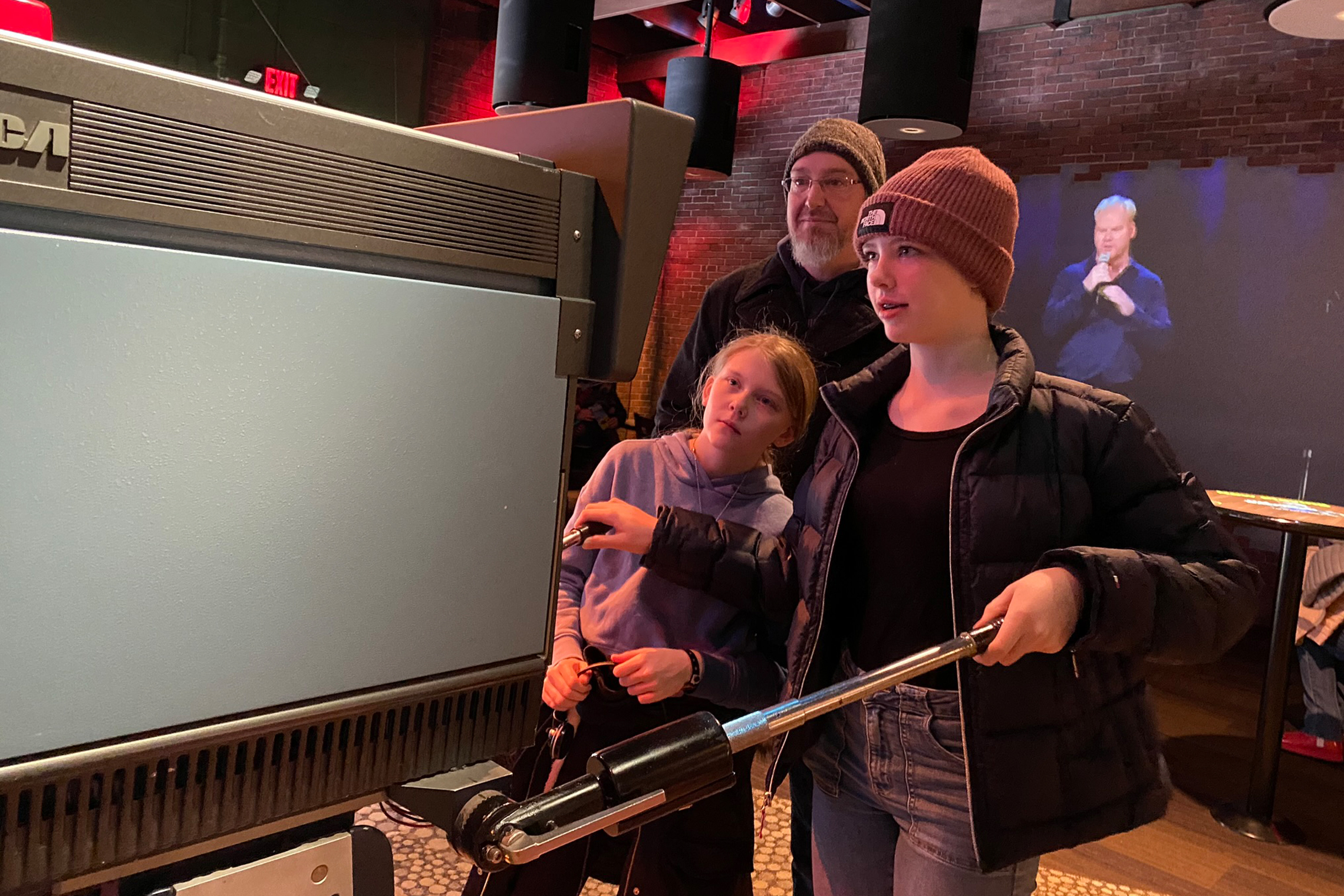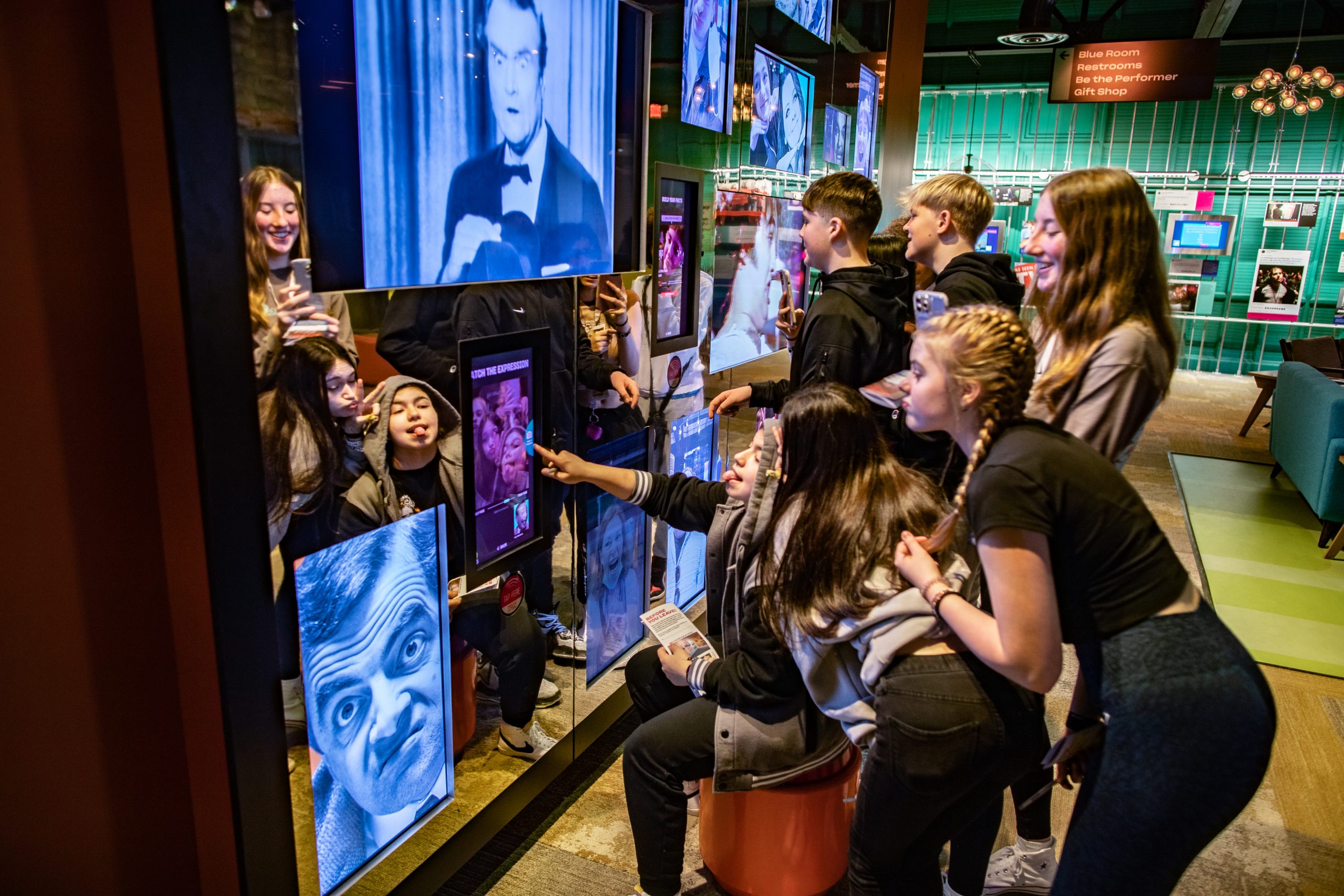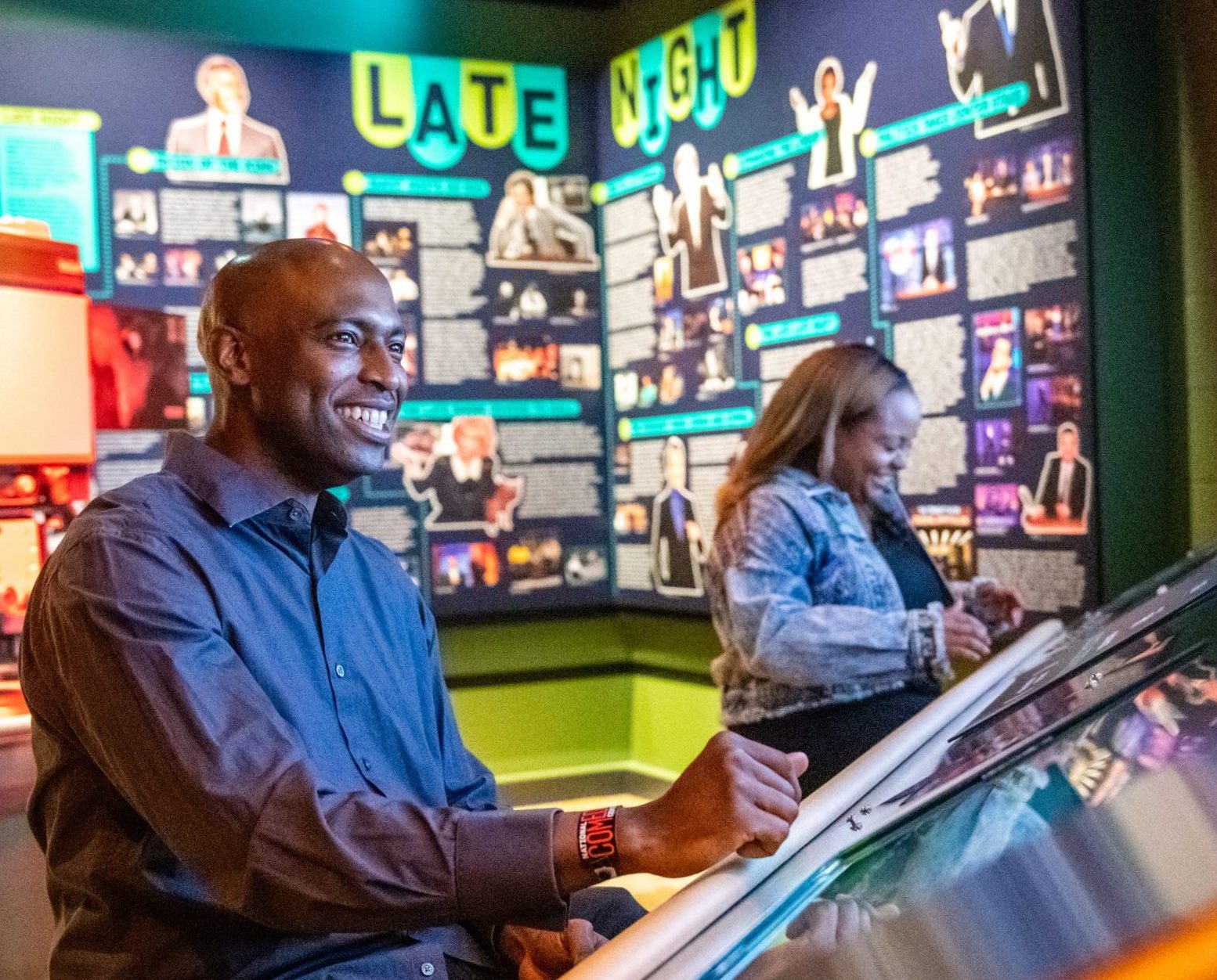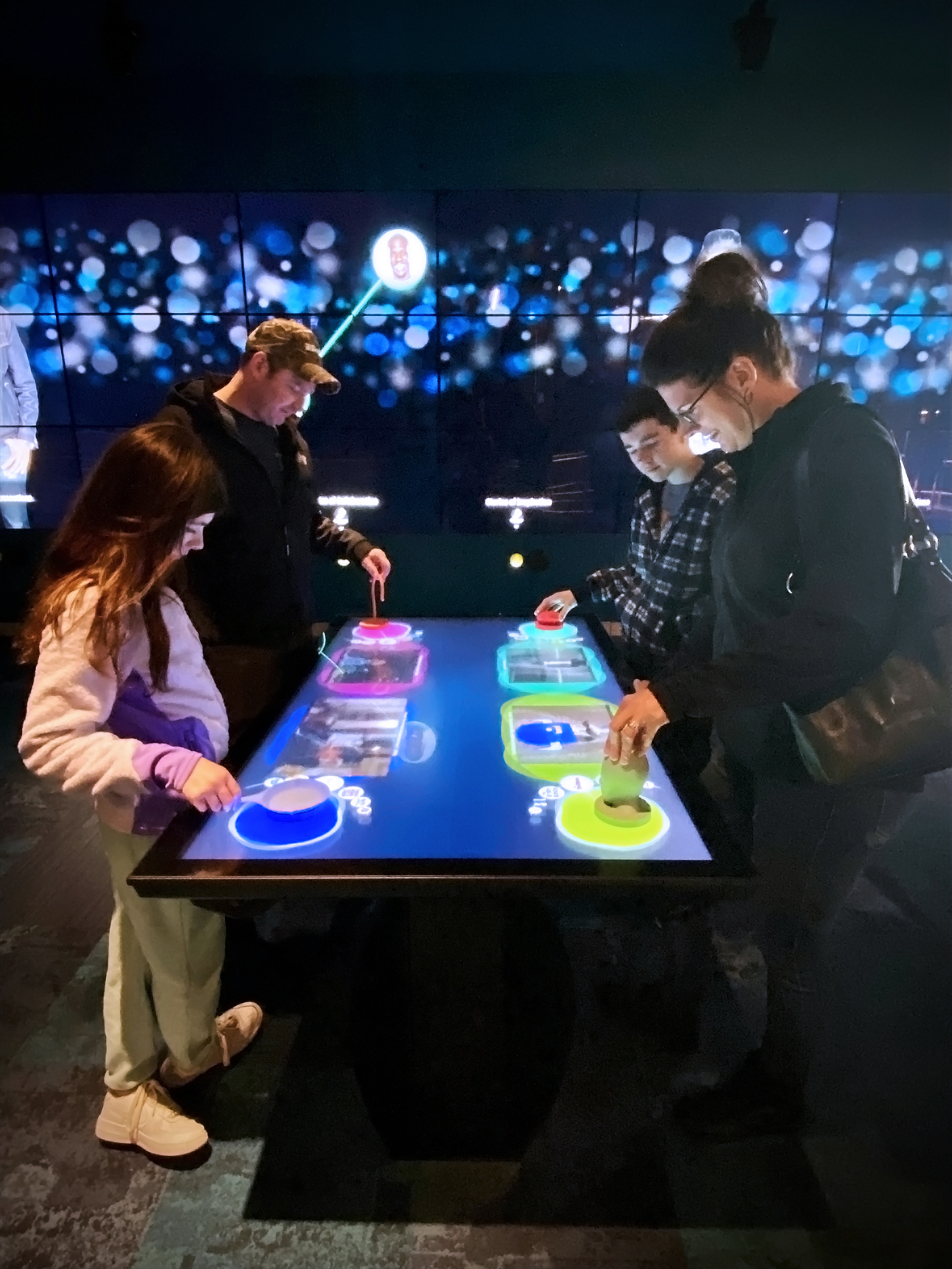The National Comedy Center is the United States’ congressionally designated cultural institution dedicated to presenting the story of comedy and preserving its heritage for future generations. The Center’s exclusive collections, world-class exhibits, and cutting-edge technology are featured throughout the 37,000-square-foot attraction. Visitors are educated, inspired, and entertained by more than 50 immersive experiences as they take an interactive journey through comedy history, from early vaudeville to the latest viral memes.
The National Comedy Center also operates the nearby Lucille Ball Desi Arnaz Museum and presents the annual Lucille Ball Comedy Festival, which, for over thirty years, has showcased rising young comedians and comedy legends including Jerry Seinfeld, Lily Tomlin, Trevor Noah, Joan Rivers, John Mulaney and Ellen DeGeneres.




Mission Statement
The mission of the National Comedy Center is to provide education on the comedic arts in the form of commentary and contextualization of its bodies of work, telling the vital story of comedy in America across all eras and genres of the art form.
As a non-profit cultural institution, the museum celebrates comedy’s great minds and unique voices, while providing an examination of the time-honed creative processes that have elevated comedy to an art.

Our Core Values
- Comedy is an art form worthy of study and has a rich heritage worthy of preservation.
- What can be learned from the study of comedy, across all genres and eras of the art form, is of great value and relevance to a broad constituency that includes lifelong learners of all ages, backgrounds, and abilities.
- Comedy is a potent form of social commentary and has played a vital role in advancing progress throughout every major social movement in American history. Our curatorial work, public programming, and institutional practices are guided by a commitment to inclusion, cultural awareness, and the amplification of a broad range of perspectives. We also recognize that comedy’s history has not always reflected the full breadth of voices and experiences, and we seek to shine a light on artists and stories that have been overlooked.
- The story of comedy is, in many ways, a story about freedom of speech. We place a high value on artistic integrity and avoid censorship to the greatest degree possible in all our activities and programs.

